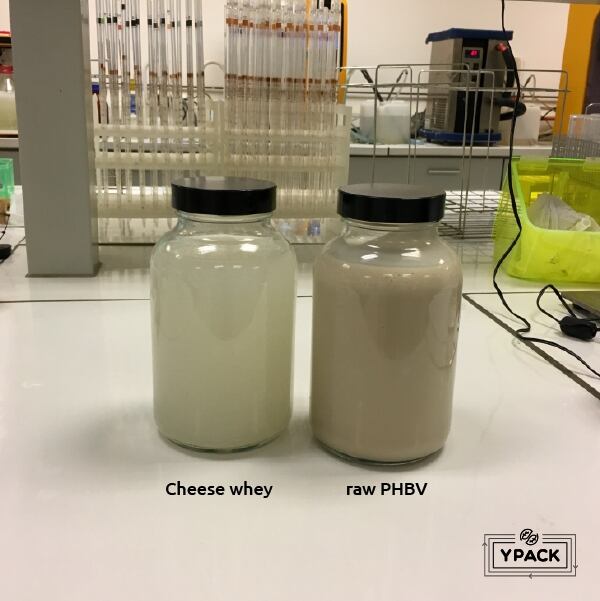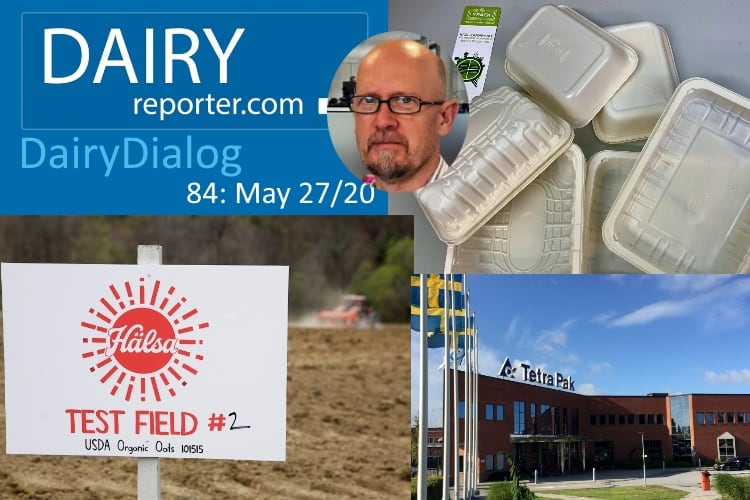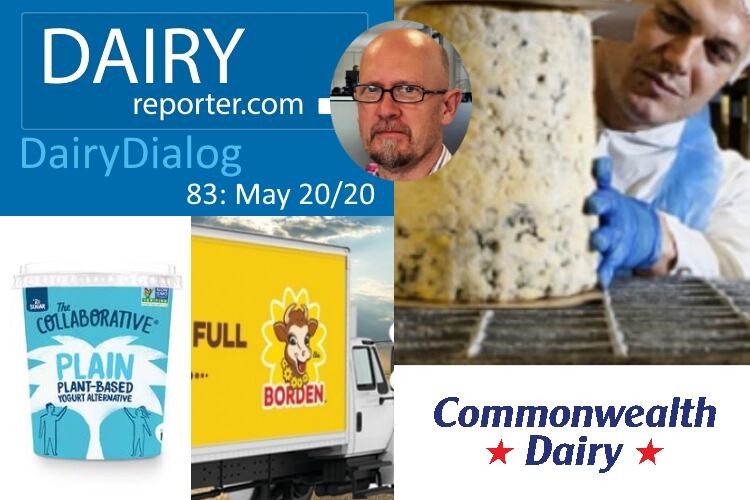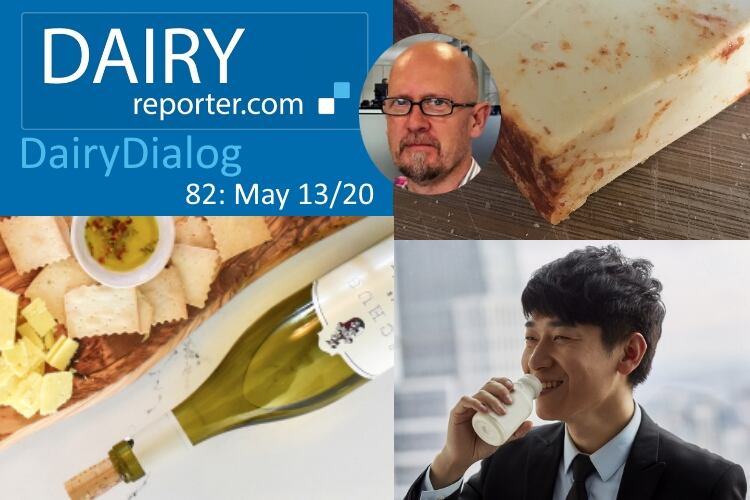We also have our weekly look at the global dairy markets with Charlie Hyland, from INTL FCStone.
Tetra Pak on TCO models
Many food manufacturers are not aware that the annual cost of running a prepared food UHT unit or homogeniser can be as high as the entire upfront investment cost. This is due to several cost drivers such as energy, maintenance, waste and labor, which can accumulate over the machine’s lifetime and exceed the purchase price by as much as 15 to 20 times.
Therefore, it is essential for food manufacturers to think beyond the one-off purchase costs and consider the total cost of ownership (TCO) before making any large investment.
Tetra Pak has more than 30 years of expertise in the prepared foods category and helps food manufacturers save up to 20% in annual operational costs (based on prepared food pasteurization units for production of dressings and condiment sauces).
Jan Lindqvist, food technologist at the company, told DairyReporter how producers can benefit by opting for the TCO model approach.
For example:
How companies can reduce the environmental footprint of machines based on data from conducting a TCO study;
How to achieve the right balance of major operational cost drivers – for example, how to optimise costs for a labor-intensive production process; and,
How to combine processing technology with insights from TCO calculations to make the correct choices for specific markets and create a payback timeline.
Hälsa Foods starts pilot farm project
Oat yogurt alternative maker Hälsa has planted Scandinavian-style organic oat seeds at the pilot farm for its dairy-to-oat conversion program in upstate New York.
"At a time when everybody is complaining about the food supply chain problems, Hälsa is actually taking action and doing something about it," Hälsa co-founders Helena Lumme and Mika Manninen said.
Hälsa said it is teaching US dairy farmers to grow organic oats with the same zero water footprint method used in Scandinavia.
Hälsa's co-founders added, "Our program allows US dairy farmers to create a domestic supply chain for premium organic oats that isn't dependent on imports. We are taking a big step to reshape the future of food in America - a vision that is now more important than ever. We implore others to take similar action in supporting and fostering growth for premium ingredients right here in the USA."
The Hälsa dairy-to-oat farm conversion program creates a long-term resolution in the US food industry by domestically growing more sustainable, nutritious and higher quality oats that can be used in multiple healthy plant-based foods.
EU project YPACK develops innovative biodegradable food packaging extending food shelf life
Plastic pollution and disposal of single use plastic packaging is a huge sustainability issue in need of innovative solutions: latest results from the EU-funded project YPACK show that an innovative formulation of active ingredients could allow this biodegradable food packaging to prolong the shelf life of foods and therefore reduce food waste.
Over the past couple of years, YPACK has developed a bio-based plastic alternative to traditional plastic food packaging. YPACK’s compostable packaging is made from a sustainable biopolymer, poly(3-hydroxybutyrate-co-3-hydroxyvalerate) (PHBV), produced from industry by-products cheese whey and micro-cellulose from almond shells. Biodegradability tests show full degradation within the regulated 90 days.
Dr José María Lagarón, from The Spanish National Research Council (CSIC), YPACK project coordinator, said, “The ideal packaging involves lower carbon and water footprints, is biodegradable and/or compostable, makes use of wastes or by-products, is properly eco-designed, safe and has the right preservation properties to minimize food waste. YPACK is delivering on this vision.”
Active packaging breakthrough
The biopolymer PHBV was used to create very thin “bio-paper” from food industry by-products.
Zinc oxide and oregano essential oil, two active ingredients, were incorporated into the bio-papers. These compounds have good antimicrobial activity against two bacteria that can cause food poisoning: Staphylococcus aureus and Escherichia coli (E. coli).
Researchers discovered an optimal ratio of the active ingredients that showed successful short-term (15 days) and medium-term (up to 48 days) anti-bacterial effects in ‘open’ and ‘closed’ systems. This means the formula could be used for food products where the packaging is opened and closed several times, for example to package meat slices or bread. The active components could be used in trays and flow films as an active layer.
These laboratory results show the potential of bio-based active packaging to increase the shelf life of fresh products like meat, fruits and vegetables and fresh pasta. However, due to regulatory restrictions within the EU, the final YPACK packaging will not, in the first instance, contain an active layer but will be made purely from biodegradable PHBV.
What’s next?
The YPACK project is entering the next phase of consumer acceptance and shelf-life studies in the spring of 2020. In a preliminary consumer study done by YPACK including over 7,000 consumers the results show they did not oppose the use of almond shells and cheese whey in food packaging materials.

Passive and active packaging technologies were similarly acceptable to the consumers. Consumers across seven countries (Denmark, France, Hungary, the Netherlands, Portugal, Spain, Turkey) participated in this study.
This three-year project reaches its end in October, moving closer to seeing YPACK packaging on the market. The full results of the YPACK project will be presented at the final conference on October 1, in Brussels.
About YPACK
YPACK is a 3-year EU-funded project with the aim of scaling up production and commercially validating two innovative food packaging solutions based on PBHV, a type of biopolymer polyhydroxyalkanoate (PHA); a fully compostable flow pack film and tray. This new packaging will make use of food industry by-products (cheese whey and almond shells), assure the biodegradability, and reduce food waste in the frame of the EU Circular Economy strategy.
The validity of the packaging will be assessed in fresh products (meat, fruits and vegetables and fresh pasta), which are the most significant contributors to food waste. A consumer profiling and market study will be performed to identify consumers ́ preferences and market needs and match them with the new EU regulations and packaging materials development.
In 2019 YPACK technology was leased to Ocenic Resins S.L. to produce biodegradable straws.
IFT on food-borne diseases and traceability
Data from the CDC's food-borne disease report shows that in 2019, food-borne illness was on the rise, with incidences of the Cyclospora parasite up by more than 1,000%, and bacterial infections diagnosed with a culture-independent diagnostic test up 32%.
This is one reason food safety has become more in the spotlight recently, and as food production ramps up to support demand from COVID-19, this challenge is compounded.
DairyReporter spoke with Thomas Burke, food safety scientist at the Institute of Food Technologists, (IFT), on the current challenges surrounding food safety and the role increased traceability can play in mitigating these risks at a time when the supply chain is stretched significantly.



